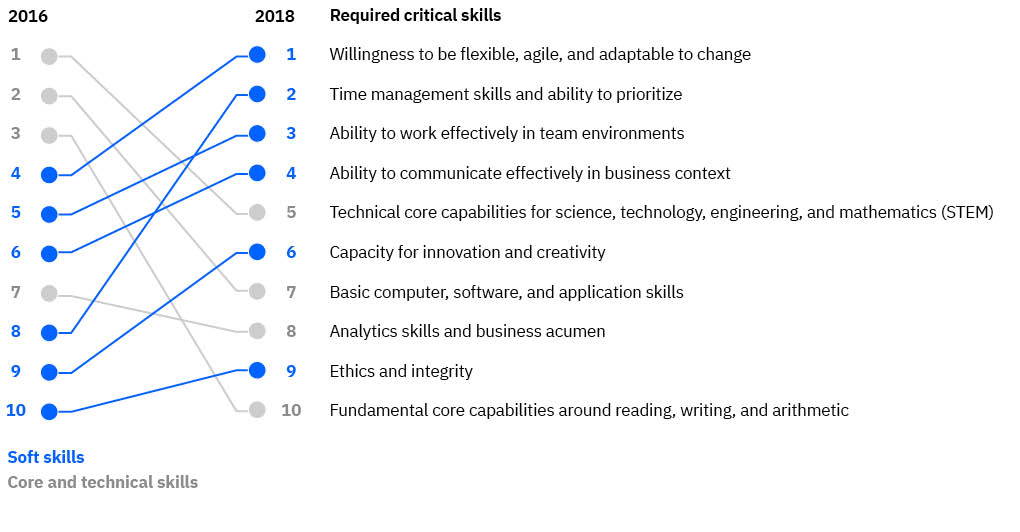The chemicals and petroleum industry guide to closing the skills gap
In recent years, a talent shortage was one of the greatest threats facing chemicals and petroleum organizations. Combined with the continuing harsh reality of the COVID-19 crisis, more workforce repercussions will surely follow.
Long before the pandemic, hiring cycles have typically followed industry cycles of oil prices. For instance, during downturns in 1986, 1998, 2008, and 2014, graduate recruitment and apprenticeships in the industry were virtually nonexistent.
In addition, during the oil downturn of 2014, the industry went through a major workforce reduction, cutting over 440,000 jobs. As a result, the labor pool has declined over the past several decades, and due to limited investments in talent recruitment, many organizations have not kept up with the demand for workers.
The labor force has a significant impact on enterprise vitality. Without skilled workers, organizations struggle to innovate, deliver value to customers, grow their businesses, and create new jobs. Chemicals and petroleum chief executive officers (CEOs) see the critical importance of skilled workers.

The struggle is real
Data has been referred to as the new natural resource. However, without talented and innovative people, the power of data remains largely dormant. Humans are essential to the process of extracting value from data and applying it in new ways.
The engineering and technology skill sets that the industry will need going forward are also shifting. The core industry skills of the future will focus on expertise in the areas of carbon, capture, utilization, and storage (CCUS), hydrogen, and offshore wind. One may wonder who is training new professionals on those new technologies today so the industry can sustain itself as it and its clients get to net-zero carbon emissions by 2050.
Digital technology: A game-changer
Advancements in technologies provide opportunities for chemicals and petroleum companies to manage and improve both physical and digital business processes. Chemicals companies can produce based on fluctuations in customer demand.
Digital technologies allow oil and gas businesses to interconnect products, value chains, and business models. Analytics enable predictive maintenance, smart drilling, and smart oilfields to help drive profitability on every barrel of oil extracted.
Digital processes are also helping organizations create new personalized products and services and interact with customers across multiple channels. Digital technologies will also be the backbone of the energy supply and demand value chain of the future, which produces and sells a hybrid mix of gas and renewables.
Closing the gap
Solving the skills challenge will not be easy. Chemicals and petroleum organizations must move beyond hiring and traditional training initiatives and commit to the continuous, strategic exploration of new learning paths. Our study provided a list of strategies and tactics and asked executives which ones they were implementing to actively close their skills gap.
Chemicals and petroleum companies are experimenting with a combination of tactics or are planning to act on their initiatives. However, the path forward remains unclear.
What blend of traditional and emerging tactics can help organizations tackle the skills challenge? Where should they invest their time and money?
The time to act is now. Executives can start today by committing to a modern workforce strategy that:
– Prioritizes skills development
– Delivers deep visibility into the skills position of both the enterprise and individual employees, and personalizes skills development at scale
– Uses new partnerships and platforms that integrate data and insights across the employee lifecycle.
Meet the authors
David Womack, Global Director of Strategy and Business Development, Chemicals and Petroleum industrySonia Van Ballaert, Global Client Director at IBM Global Markets
Spencer Lin, Global Research Leader, Chemicals, Petroleum, and Industrial Products, IBM Institute for Business Value
Originally published 13 May 2020


